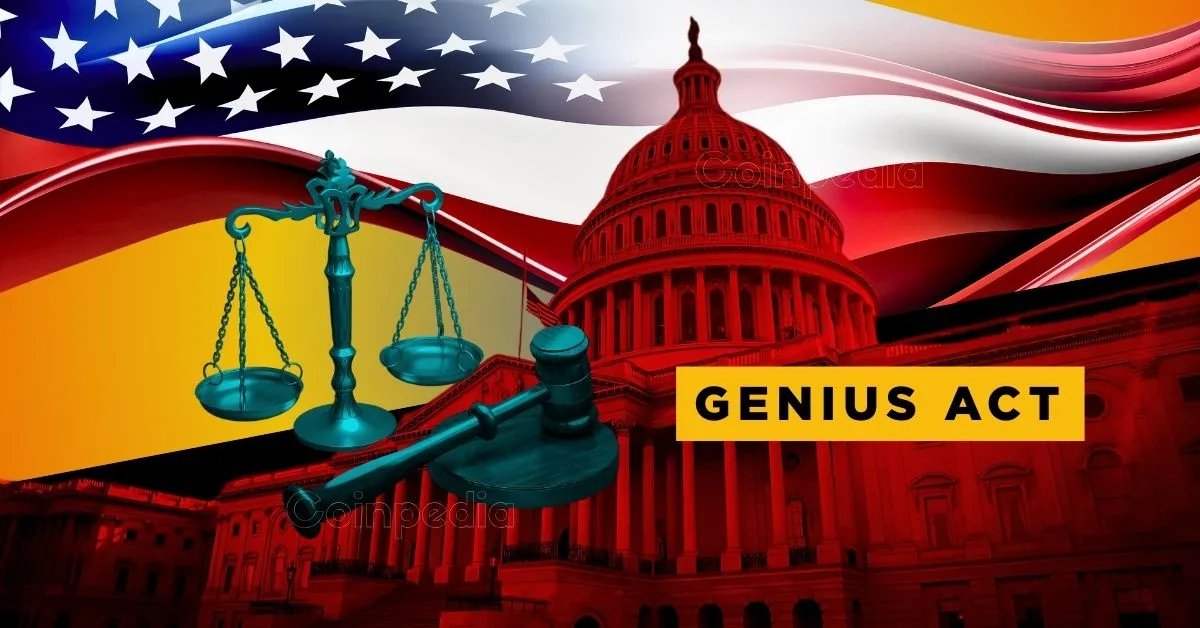The Cryptocurrency Landscape Shifts: GENIUS Act Passes Senate
The digital currency arena is buzzing with anticipation following the Senate’s approval of the Guiding and Establishing National Innovation for U.S. Stablecoins (GENIUS) Act. This landmark achievement, sealed with a 68-30 vote, signifies a pivotal moment for the cryptocurrency industry. It’s a clear signal that lawmakers are increasingly ready to grapple with the complexities of digital assets and establish clear rules of the road. While the Act still needs to navigate the House of Representatives, this Senate victory is a resounding win for stablecoin regulation advocates, potentially paving the way for wider adoption of this technology.
Decoding the GENIUS Act: A Blueprint for Stability
Stablecoins are cryptocurrencies engineered to maintain a stable exchange rate with a reserve asset like the U.S. dollar. They have become indispensable tools in the digital asset ecosystem, streamlining trades, offering investors a less volatile entry point, and fueling the engines of decentralized finance (DeFi) applications. However, the lack of coherent oversight has sparked concerns about protecting consumers, maintaining financial stability, and preventing illicit activities.
The GENIUS Act directly confronts these issues by establishing a cohesive national regulatory framework for stablecoins. The heart of the bill lies in ensuring that stablecoins are backed by substantial reserves, subjected to frequent audits, and governed by rigorous oversight protocols. This framework promises clarity for stablecoin issuers, safeguards consumers from potential pitfalls, and promotes innovation in the stablecoin market. Its passage is widely hailed as a pivotal stride toward legitimizing stablecoins and integrating them seamlessly into the traditional financial system.
A Bridge Across the Aisle: Bipartisan Backing
The GENIUS Act’s triumph in the Senate is primarily because of its ability to garner support from both sides of the political spectrum. Championed by Republican Senator Bill Hagerty of Tennessee and co-sponsored by Chairman Tim Scott (R-S.C.), the bill drew votes from Republicans and Democrats alike. This spirit of collaboration underscores a shared understanding of the urgent need to address regulatory gaps surrounding stablecoins.
The Senate Banking Committee initially endorsed the bill with an 18-6 vote, demonstrating early confidence in its merits. Leading figures in the crypto industry also voiced their support, further reinforcing the bill’s prospects. The fact that the bill was approved roughly six weeks after its introduction underscores the urgency lawmakers felt to address this issue. This unified front contrasts sharply with past attempts at crypto regulation, which often floundered due to partisan divisions.
Unlocking Potential: The $254 Billion Market
The stablecoin market has witnessed explosive growth in recent years, currently boasting a market capitalization exceeding $254 billion. This exponential growth highlights the surging demand for stable digital currencies and their potential to revolutionize the financial landscape. The GENIUS Act is seen as essential to unlocking further growth and broader mainstream acceptance.
By establishing a clear regulatory framework, the bill seeks to attract institutional investment, foster innovation, and instill consumer confidence in stablecoins. A well-defined regulatory framework can mitigate risks associated with stablecoins, like potential market runs or systemic instability. The GENIUS Act is viewed as a positive development for the entire crypto ecosystem, potentially creating a path toward greater acceptance and integration of digital assets.
The Road Ahead: Navigating the House of Representatives
Despite the Senate’s decisive vote, the GENIUS Act is not yet signed into law. It now moves to the House of Representatives, where its fate is more uncertain. House lawmakers have several options: adopt the Senate version, amend it, or pursue alternative legislation.
The House previously passed a stablecoin bill last year, but it failed to gain traction in the Senate. This precedent suggests that reaching a consensus in the House may be challenging. Furthermore, the legislative landscape has shifted since then, with Democrats no longer holding the majority in the Senate. The timing is also critical, with a vote expected in the House within the next three weeks.
Some advocate for passing the CLARITY Act alongside the GENIUS Act, seeking a more comprehensive approach to crypto regulation. The outcome in the House will determine whether the GENIUS Act becomes law and whether the United States can solidify its position as a leader in digital assets regulation.
An Important Step, Not the Journey’s End
The Senate’s passage of the GENIUS Act represents a significant victory for the cryptocurrency industry and a crucial step toward responsible innovation. The bill’s bipartisan support signals a growing recognition of the potential advantages of stablecoins and the need to address the potential downsides. However, the journey is far from complete. The fate of the bill now lies in the hands of the House of Representatives, and its enactment into law is far from guaranteed. If enacted, the GENIUS Act is expected to be the opening chapter in a much longer story about regulating the rapidly changing world of digital assets. Ongoing monitoring, refinement, and cooperation among lawmakers, regulators, and industry participants will be critical in ensuring that the regulatory framework remains effective and fosters a healthy and responsible crypto ecosystem. The fate of stablecoins and, indeed, the larger crypto industry hinges on the decisions made over the next few weeks.











